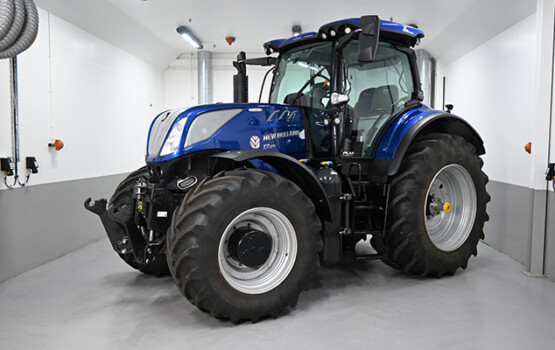Portal for more climate-friendly mobility

Industrial e-fuel production launched
E-fuels as a sensible addition: the «Haru Oni» pilot plant run by Porsche and the Chilean operating company HIF supplies the first synthetic fuel.
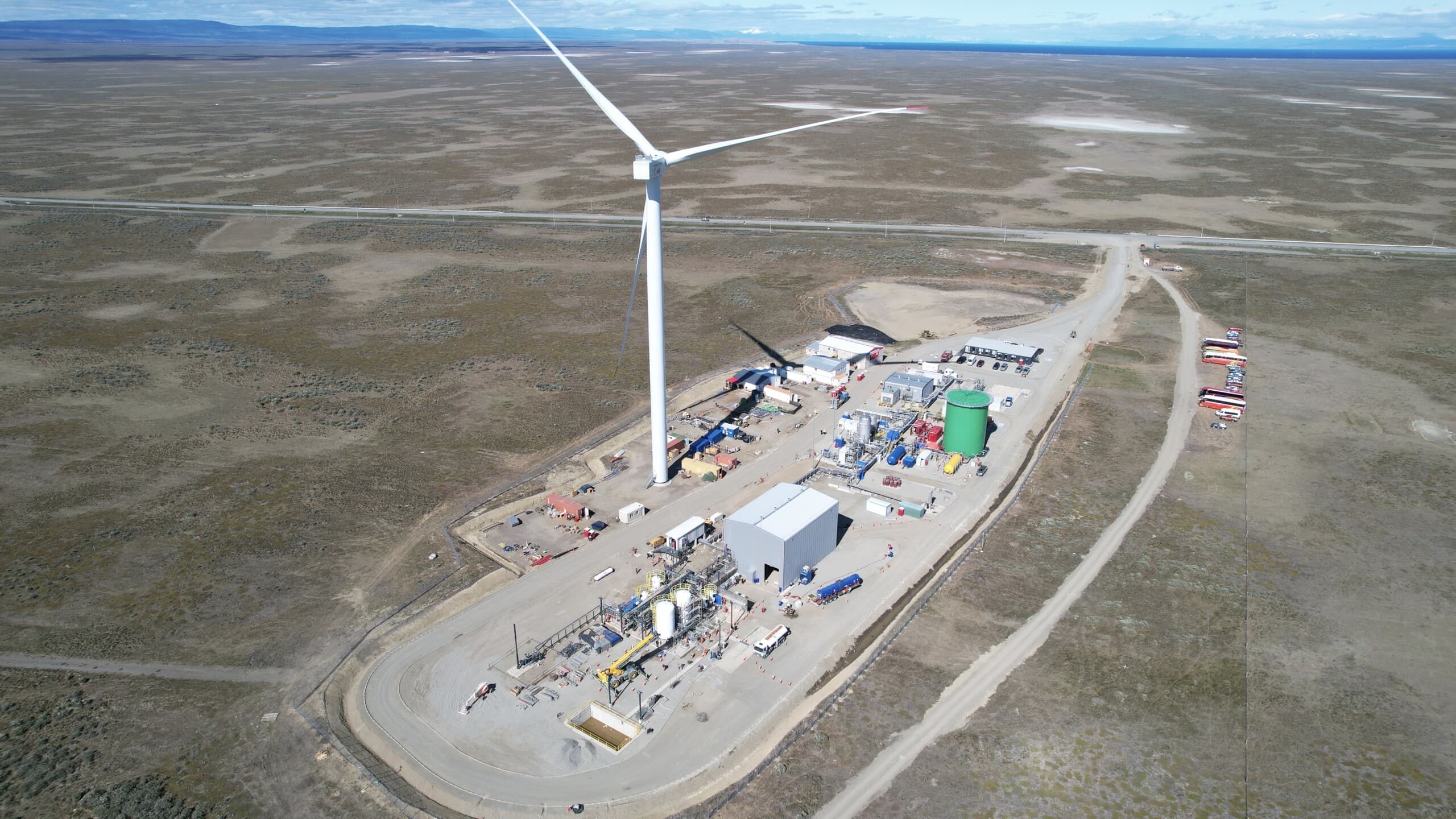 The «Haru Oni» pilot plant run by Porsche and operating company HIF delivers the first synthetic fuel – a sensible addition to e-mobility. Source: Porsche
The «Haru Oni» pilot plant run by Porsche and operating company HIF delivers the first synthetic fuel – a sensible addition to e-mobility. Source: Porsche
So-called e-fuels or synthetic fuels are produced from the synthesis of hydrogen (H) and carbon (C). Electrolysers use renewable electricity to split water (H2O) into oxygen (O) and green hydrogen (H). The CO2 filtered from the air is then combined with the hydrogen to form synthetic methanol (CH3OH or CH4O). This results in a variety of e-fuels that can be used in combustion engines for vehicles, ships, aircraft or static applications such as generators, allowing the latter to be operated on a virtually carbon-neutral basis, as is the case with biogas. Another major advantage of e-fuels: not only are they climate-neutral, they are also compatible with the existing tank and distribution infrastructure.
In the presence of Chilean Energy Minister Diego Pardow, the «Haru Oni» pilot plant was officially opened by Porsche and international partners associated with the Chilean operator Highly Innovative Fuels (HIF). Barbara Frenkel and Michael Steiner, both members of the Porsche Executive Board, then ceremoniously refuelled a Porsche 911 with the first locally produced synthetic fuel. Sustainably produced using Chilean wind energy, the e-fuel enables even the powerful sports car with its internal combustion engine to run on a virtually carbon-neutral basis.
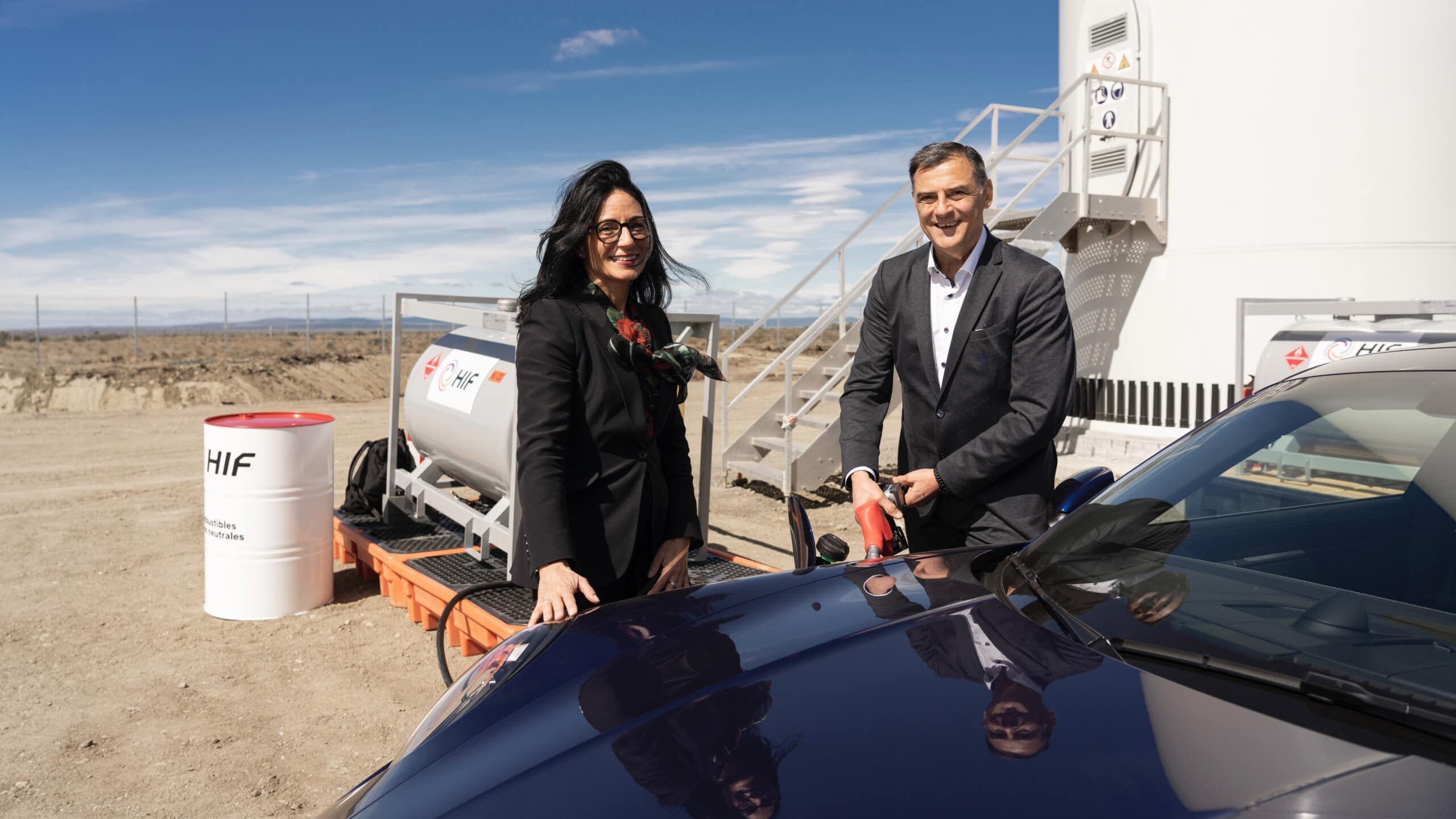 Barbara Frenkel, Member of the Executive Board responsible for Procurement at Porsche AG, and Michael Steiner, Member of the Executive Board responsible for Development and Research at Porsche AG, refuel the first 911 with Chilean e-fuel. Source: Porsche
Barbara Frenkel, Member of the Executive Board responsible for Procurement at Porsche AG, and Michael Steiner, Member of the Executive Board responsible for Development and Research at Porsche AG, refuel the first 911 with Chilean e-fuel. Source: Porsche
«Porsche has opted for a double E strategy: electromobility, with e-fuels as an addition. The use of e-fuels reduces CO2 emissions,» explains Barbara Frenkel, Member of the Executive Board for Procurement at Porsche AG. «In terms of the transport sector as a whole, the industrial production of synthetic fuels needs to be further advanced worldwide. Porsche is playing a leading role in this development with its e-fuels pilot plant.» And her colleague Michael Steiner, who has already praised Switzerland for its pioneering role in allocating the biogenic share of CO2 emissions from CNG vehicles with biogas, adds: «The potential of e-fuels is enormous. Today, there are more than 1.3 billion internal-combustion vehicles worldwide. Many of them will be on the road for decades to come.» As the Member of the Executive Board for Development and Research at Porsche AG goes on to explain: «E-fuels offer the owners of existing vehicles a perspective. As a manufacturer of high-performance and efficient engines, Porsche has extensive expertise in the field of fuels.»
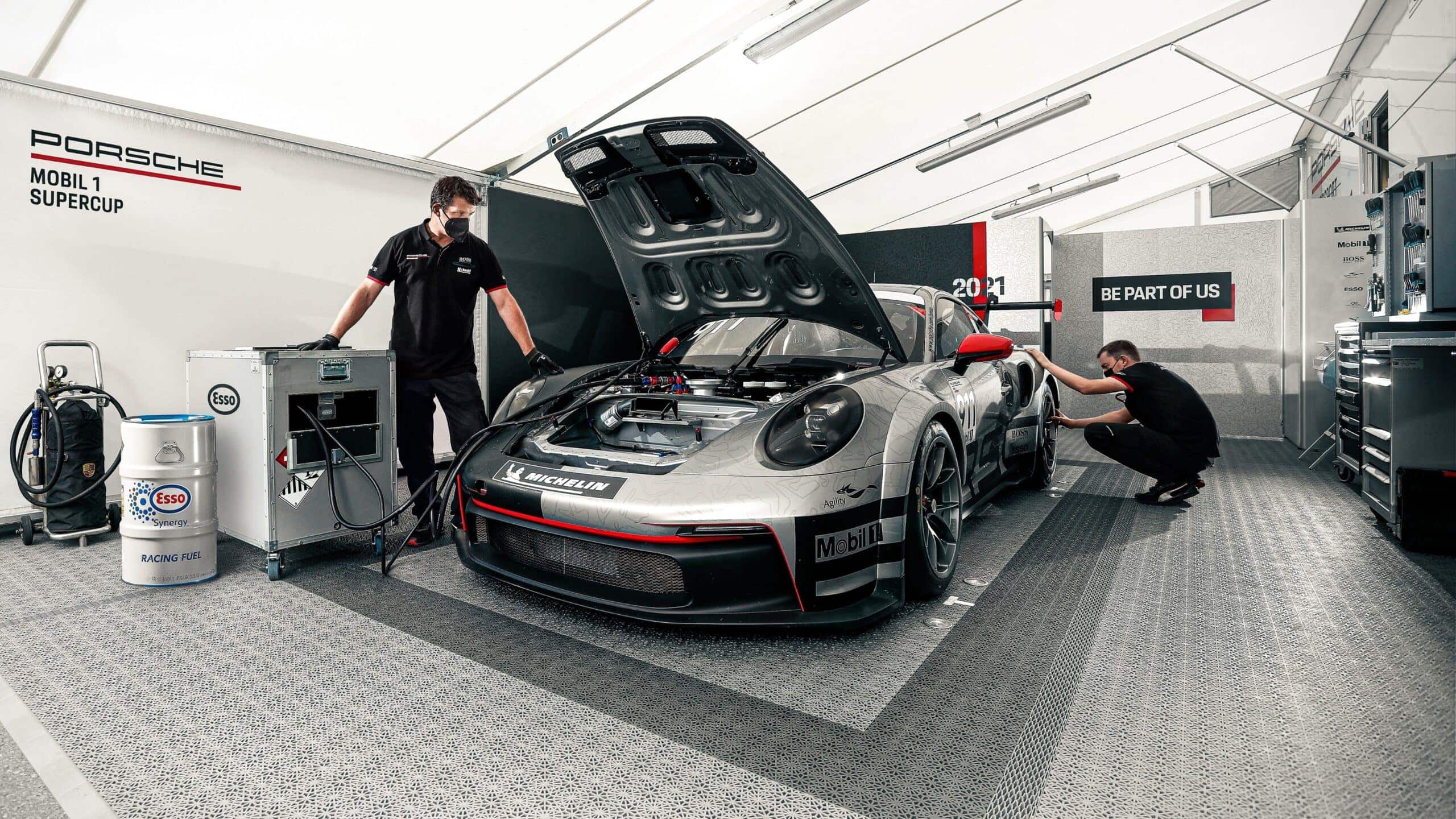
As part of the Porsche One-Make Cup, all new 911 GT3 Cup race cars will run on a primarily bio-based e-fuel from the 2021 season. Source: Porsche
During the pilot phase, the plan is to produce around 130,000 litres of e-fuels per year in Punta Arena, Chile. Initially, the fuel will be used in flagship projects such as the Porsche Mobil 1 Supercup and at the Porsche Experience Centers. Following the pilot phase, the project in Chile is expected to reach a level of around 55 million litres per year by the middle of the decade, based on initial scaling. Around two years later the capacity is expected to reach 550 million litres. Porsche is working to achieve a carbon-neutral value chain by 2030. Synthetic fuels complement electromobility and are part of the sustainability strategy being pursued by the sports car manufacturer, which is planning to establish further e-fuel plants in the USA and Australia in collaboration with HIF Global LLC. (pd/jas, 27 December 2022)
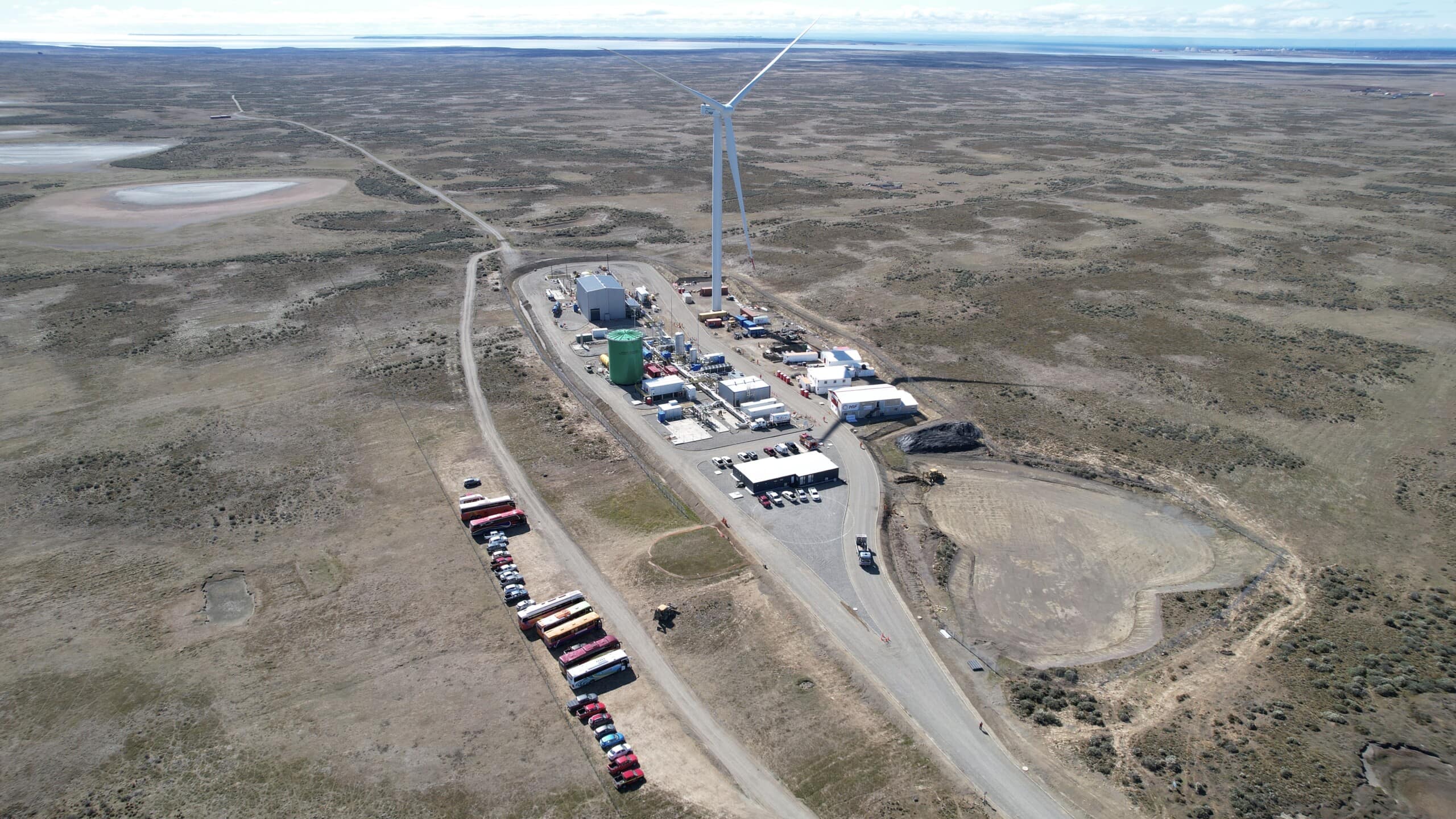 Porsche is working toward a balance sheet CO2-neutral value chain in 2030 and has so far invested over $100 million in the development and deployment of e-fuels. Source: Porsche
Porsche is working toward a balance sheet CO2-neutral value chain in 2030 and has so far invested over $100 million in the development and deployment of e-fuels. Source: Porsche
You might also be interested in
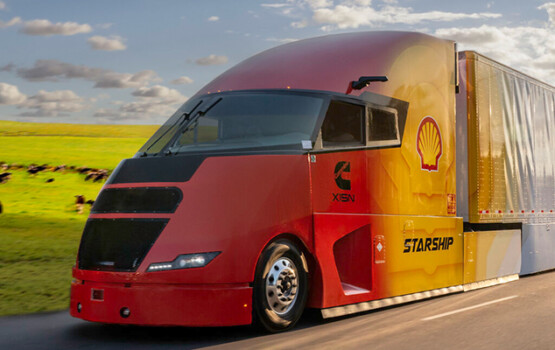
Shell Starship on record hunt
